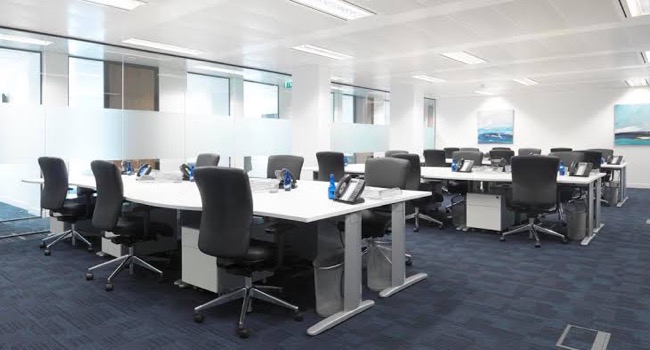Business
COVID-19: Real estate facing gloomy future –Report

Nearly 84% of chief executives in Nigeria believe that the outlook for the real estate sector, particularly for companies involved in the business of office rentals, is gloomy as a result of the coronavirus outbreak, the Phillips Consulting CEO Report has said.
The report, an initiative for 100 Nigerian business leaders, noted that 83% and 55% of CEOs had embraced ‘work from home strategy’ and ‘standby model strategy’ respectively and were beginning to question the need for large offices.
“Only 46 per cent CEOs are considering retaining their current offices, while others will seek smaller and cheaper offices, shared offices, or adopt an entirely virtual working model,” the report released on Wednesday said.
It stated that real estate players must brace up for a demand shift in commercial centres like Lagos where huge high-rise buildings are commonplace.
“One word that best describes today’s business environment is “uncertain”. The ‘new normal’ occasioned by the effects of the Coronavirus pandemic is gradually fading away and being replaced by what is termed the ‘next normal,” it added.
Rob Taiwo, Phillips Consulting’s CEO, said the IT sector saw a rise in the wake of the pandemic due to shift to remote working. The implication was an enormous dependence on IT products for personal and business purposes.
“From our survey, 86 per cent of CEOs reported that the pandemic led to them improving the IT infrastructure of their organizations. Our respondents predict that Nigeria’s healthcare, agribusiness, and manufacturing industries stand to benefit from the next normal.”
Read also: Operators invest N250bn pension funds in real estate
“They expect the professional services industry to experience comparatively minimal disruption. This is primarily due to their vast array of services, relatively low operational expense, lean and agile business model, and legacy clients,” he said.
Just 6% of the CEOs, according to the report, said their firms were prepared for the pandemic, making it no surprise that 55% of businesses in Nigeria are performing at 50% below their operating capacity.
The 6% showed that a strong leadership team as the most essential factor of their preparedness. Other factors were having a viable business continuity plan, government support, and a clear business strategy.
57% of the CEOs anticipate that the earliest possible time for the Nigerian business environment to normalise will be August 2021.
“Results from our survey showed that the Nigerian government and business leaders should pay close attention to the post-COVID19 policies and strategies of the United Kingdom, China, and the United States of America as these will have the most profound impact on the Nigerian business environment.”
Join the conversation
Support Ripples Nigeria, hold up solutions journalism
Balanced, fearless journalism driven by data comes at huge financial costs.
As a media platform, we hold leadership accountable and will not trade the right to press freedom and free speech for a piece of cake.
If you like what we do, and are ready to uphold solutions journalism, kindly donate to the Ripples Nigeria cause.
Your support would help to ensure that citizens and institutions continue to have free access to credible and reliable information for societal development.
























